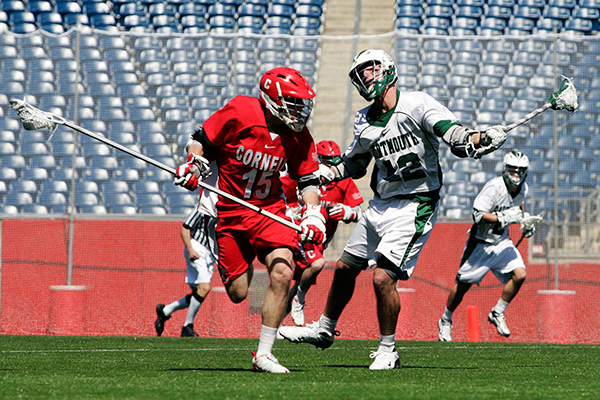What is a Sport (Part 2)
Go ahead Callum, be a dick about it.
I am sure Callum will instantly set about tearing down anyone and everyone’s moderate and sensible notions of what a sport is in scurrilous fashion. I can hear his self-righteous pomp now: “I don’t care what you say Gus, javelin is not a sport (voice a little higher pitched now), it’s just not (even higher now), I mean, I don’t know how anyone can think that javelin is a sport, what you’re thinking of is a hobby (and finally, at a pre-pubescent crescendo), I don’t care what anyone says, I’m not going to let those hippies win, rah rah rah, tax the poor, rah rah rah.”
While Callum’s theory is sure to be polarising, like a child he sees only in black and white, while I understand the more sophisticated concept of a “grey area”. Skills are not divided simply into “open” and “closed” activities. They are spread along a continuum, and most have elements of both (I don’t have time to explain what closed and open skills are, this isn’t Sixth Form PE).
In my opinion, an activity can consist mostly of closed skills, but as soon as it tips even slightly off the impossibly high pedestal of a “purely closed skill” then it is eligible to become a sport. Take Javelin as an example. In essence, it is a closed skill. But then introduce external factors such as the pressure of competition, the environment of the stadium, and the fact a winner will be crowned, and you’ve got yourself enough grey area to rebuff the black-and-white “closed skills can’t be sports” argument. I’m not saying that all closed skills are sports, but that an event appearing “closed” at first glance is not enough to banish it from the sporting pantheon forever.
For me, a sport only has to clear three hurdles to make the grade. Is it organised (not spontaneous)? Is it competitive (a contest)? Is it physical (the primary means of success is through the superior execution of a physical skill)? If yes to all three, then you’ve got yourself a sport my friend. Come on up here with the rest of us. Now, the physical part is important. The other two criteria are pretty easy to meet, but the physical element really decides the issue. Is the main activity involved in the sport powered by the participant’s own body? If so, then yeah, you’ve got yourself a sport. Football? A sport. Javelin? A sport. Darts? Sure, why not. Video games? Nah.
So I’m sure Callum has had a great old time tearing down all the things he thought you thought you knew about what a sport is. I have tried not to get bogged down in semantics and lexicology – we all know that’s boring as shit. It’s the reason legal trials don’t attract massive audiences. You know what do attract massive audiences? Sports. Now go watch the Olympics.







